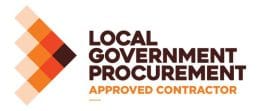10 Common CV Mistakes and How to Fix Them
Your CV is often the first impression a recruiter or hiring manager gets of you. If it’s cluttered with unnecessary or outdated information, it could be costing you job opportunities. Here are 10 things to remove from your CV to make it more effective:
1. Unnecessary Personal Information
Employers don’t need to know your date of birth, marital status, religion, or full home address. These details are irrelevant to your qualifications and, in some cases, can expose you to unconscious bias. Instead, simply list your city and state/region.
Remove: Date of birth, full address, marital status, nationality
Keep: Your name, phone number, email, LinkedIn profile (if applicable)
2. Outdated or Irrelevant Work Experience
If you have 10+ years of experience, there’s no need to include every job you’ve ever had—especially if it’s unrelated to your current career goals. Hiring managers are interested in your most recent and relevant experience.
Remove: Early-career roles that don’t contribute to your qualifications for the role
Keep: The most relevant roles (typically from the past 10–15 years)
3. Objective Statement
An old-school “Objective Statement” that says something like, “Seeking a challenging role where I can utilize my skills…” is outdated and redundant. Instead, use a Professional Summary—a short paragraph that highlights your key skills, experience, and what you bring to the role.
Remove: Generic objective statements
Keep: A concise professional summary showcasing your unique value
4. References or “References Available Upon Request”
Recruiters assume you’ll provide references when needed, so there’s no need to waste space stating the obvious. If references are required, employers will ask.
Remove: The reference section entirely
Keep: Space for more important content, like achievements and key skills
5. Overused Buzzwords & Clichés
Phrases like “hardworking team player” or “results-driven professional” sound impressive but don’t add real value unless backed by examples. Focus on concrete achievements instead.
Remove: Empty buzzwords like “motivated self-starter” without context
Keep: Specific examples of your accomplishments and skills
6. Excessive Job Descriptions
Instead of listing every responsibility you had in previous roles, focus on achievements. Employers want to see how you made a difference, not just what you were supposed to do.
Remove: Long lists of generic duties
Keep: Bullet points with quantifiable results (e.g., “Increased sales by 30% in six months”)
7. Outdated Skills & Certifications
Listing outdated software or skills that are no longer in demand makes you look behind the times. Make sure everything on your CV is relevant to today’s job market.
Remove: Skills that are no longer relevant (e.g., Windows XP, outdated programming languages)
Keep: Current skills and certifications that align with your industry
8. High School Education (If You Have Higher Qualifications)
If you have a degree or other post-secondary qualifications, your high school education is unnecessary. Employers are more interested in your most recent and highest level of education.
Remove: High school details (if you have a diploma, degree, or certifications)
Keep: Only relevant higher education and certifications
9. Fancy Formatting & Graphics
Unless you’re applying for a creative role, fancy fonts, colors, images, and graphics can make your CV harder to read and less ATS-friendly (Applicant Tracking Systems may struggle to scan it). Stick to a clean, professional format.
Remove: Unnecessary graphics, multiple fonts, complex layouts
Keep: A simple, well-structured design that is easy to read
10. Unexplained Employment Gaps
Large gaps in your work history can raise red flags. Instead of leaving them unexplained, provide a brief explanation, such as:
- Parental leave
- Career break for travel or further study
- Freelance or contract work
Remove: Empty time gaps without explanation
Keep: A brief reason for the gap (if relevant)
By removing these unnecessary elements, you can make your CV more concise, impactful, and tailored to each role—increasing your chances of getting noticed by recruiters and hiring managers.
Would you like help refining your CV further, contact our recruitment team today on info@optimalrecruitment.com.au or 02 8416 4181.









